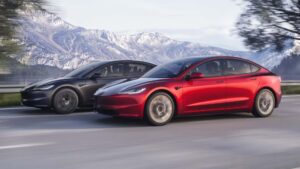This news indicates Tesla’s growing interest in the Indian market, which is not surprising given the potential size and growth of the Indian automobile sector.
A few key takeaways and potential implications from this information are:
1. Increased Sourcing from India: Tesla sourcing auto components worth US$ 1 billion from India and aiming for US$ 1.9 billion indicates the company’s trust in the Indian supply chain’s quality and cost-effectiveness. This could also be beneficial for the Indian auto components industry, potentially boosting exports and generating employment.
2. Import Taxes & Local Manufacturing: The discussions around lowering import taxes indicate that Tesla is keen on bringing its cars to India at a competitive price. Setting up a local manufacturing unit would enable the company to avoid hefty import duties and tap into local incentives, further reducing costs. Additionally, a local manufacturing unit would also mean direct job creation and technology transfer.
Tesla
3. Cheaper Tesla Model: A new electric car that’s 25% cheaper than the current entry-level Tesla model would be significant. Such a move could make Tesla vehicles more accessible to a broader segment of the Indian population, potentially increasing their market penetration.
4. Long-Term Vision: Minister Piyush Goyal’s statement about the expectation for a “compulsive economic composition for consumers to buy EVs” by 2030 underscores the Indian government’s vision and potential policy direction favouring electric vehicles in the future.

Final Proposal
5. No Final Proposal Yet: Even though the latest talks did not culminate in a final proposal for setting up a factory, Elon Musk’s statement about a “significant investment in India” keeps the door open for future developments.
6. Competition & Market Landscape: If Tesla establishes a strong foothold in India, it could challenge domestic and international EV makers already operating or planning to enter the Indian market.
Conclusion
The potential entry of Tesla into India can have multifaceted implications not only for the automobile sector but also for related industries, infrastructure development (like charging stations), and the overall move towards sustainable energy in the country.
































